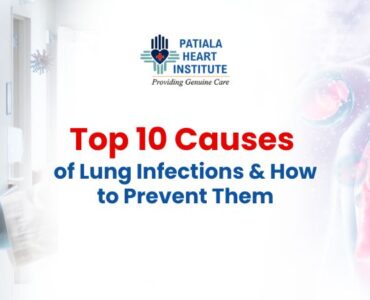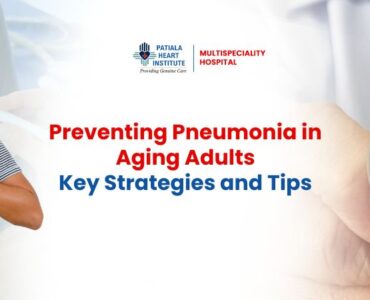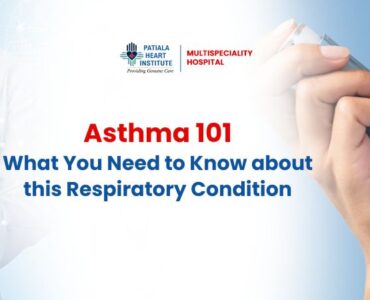Around the world, 3.6% of the entire population lives with an anxiety disorder, according to the World Health Organization’s (WHO) most recent estimates.
Every chest pain is not synonymous with a heart attack; some are associated with anxiety issues. And in that case, you might experience mental and emotional symptoms alongside physical symptoms. Such symptoms can be painful, annoying, and sometimes even dangerous.
A symptom that can be most worrisome is the pain in and around the chest. Many anxiety patients have experienced this pain but fail to connect it with their anxiety disorders. You always have thought of the pain being connected with your heart problems or even worse. But thinking of the worst situations only increases your anxiety and nothing else.
Throughout this blog, we have discussed some information that can help you identify the causes, symptoms, and treatment of anxiety chest pain.
Can Anxiety Cause Pain in the Chest?
Many of you may have raised this question, and the answer is yes!!
Anxiety indeed causes chest pain. Therefore, if you are suffering from anxiety, there are chances that you might experience some pain in your chest, especially when you encounter a panic or anxiety attack.
Although these pains can be frightening, you can get relief by knowing the reason behind them. These pains actually indicate that your body is trying to protect yourself from a perceived or a real stressor.
Symptoms of Anxiety Chest Pain
The chest pain arising from anxiety can differ from chest pain for other reasons. Following are a few symptoms in the chest area caused by anxiety:
- Sharp, shooting or stabbing pain
- Persistent, dull aching
- Tightness, tension, or pressure
- A burning sensation
- Numbness in certain areas
- Twitching or spasms
Such conditions can create some discomfort for you either gradually or all at once when you are in the middle of a panic attack. But you should not take them lightly; instead, visit a doctor to seek medical help.
What can Cause Anxiety Chest Pain?
In addition to mental turmoil, a panic attack can cause several physical symptoms. However, these symptoms are your body’s reaction to a real or perceived stressor.
Whenever you are anxious, your body enters into a state referred to as fight or flight, which prepares you for a battle against something that could hurt you. Your body does this in numerous ways, including increased heart rate, breathing, and blood pressure, and by triggering the release of adrenaline and noradrenaline.
Many of such responses end up causing pain in the chest. But the major causes of chest pain during anxiety are:
Increased Heart Rate
It can lead you to the feeling of pounding in the chest, heart palpitation, and coronary artery spasm.
Hyperventilation
It results from shortness of breath and can also cause changes in the levels of carbon dioxide in your blood.
Increased Blood Pressure
It increases the oxygen demand in the heart and can cause strain on small blood vessels due to increased blood flow.
Muscle Tension
It generally results from stress and can manifest as tightness in the muscles in the chest.
Anxiety Chest Pain Treatment
Several treatment options are available if you feel pain in your chest during anxiety. But if your symptoms worsen, visit a doctor and take advice from him.
They will suggest treatment or medication cure your anxiety. But there are a few things that you can also try to keep yourself calm and stress-free:
- Deep breathing to slow down your heart rate
- Finding a safe and calm place where you will feel comfortable
- Working out daily
- Meditating
- Quality Sleep
- Quit smoking or drugs
- Have a healthy diet
Anxiety Chest Pain Vs. A Heart Attack
Anxiety chest pain is frightening because people associate it with a heart attack. But it’s fair to feel concerned because approximately 3 million people die annually from stroke and heart attack.
Studies also show that 80% of people who go to the emergency room with chest pain do not have a heart attack, and 58% of that group suffers from moderate to severe anxiety.
Although both the pains look quite similar, there are several differences between them. An anxiety chest pain limits itself to the chest only, lasting only for 10 minutes. But the heart attack starts slowly, and it causes pain in the chest, arms, shoulders, and jaw. The pain tends to worsen with time and lasts longer than anxiety chest pain.
So, if you think you are experiencing heart attack symptoms, consult an expert cardiologist to seek medical help.
Our Final Words
You need to differentiate between anxiety chest pain, and a heart attack as both of these are like the east and the west. But if you are still confused or worried, visit a doctor to get clarification about every question that arises in your head.
Our team of highly skilled cardiologists at Patiala Heart Institute provides comprehensive care to patients, making it one of the best hospitals in Patiala. Contact us if you would like more information about anxiety chest pain.
Book an appointment with us today!
Frequently Asked Question
How long does anxiety chest pain last?
Anxiety chest pain is a prevalent symptom among patients with anxiety disorders. It is also one of the most frustrating symptoms, as it can last for hours, days, or weeks. The duration of this pain varies depending on the type of anxiety disorder and its severity. In some cases, it can last up to six months or more.
What part of your chest hurts with anxiety?
The part of your chest where you feel pain when you are anxious is called the cardiac plexus. It is a small bundle of nerves that runs from the base of your heart to your abdomen and back up again. When you feel anxious, these nerves start firing in response to stress and adrenaline, which causes them to release chemicals into your bloodstream and makes your heart pump faster.








Thanks for the tips you have shared here.